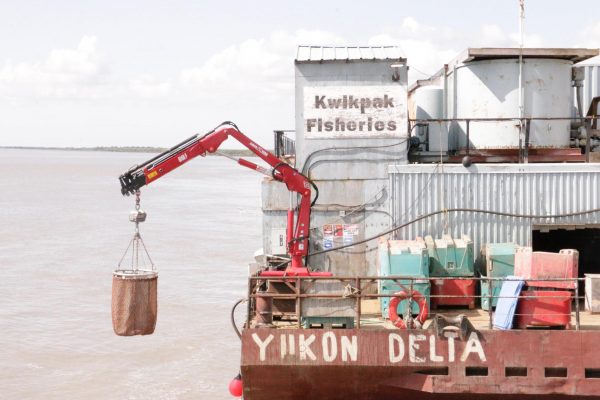
A COVID-19 case in the Southwest Alaska community of Mountain Village has shut down commercial fishing in the area.
Kwik’pak, a plant that processes Yukon River salmon, has stopped purchasing fish in Y2, or District 2 of the Yukon River, which includes Mountain Village, Pitkas Point, St. Mary’s, Pilot Station and Marshall.
Kwik’pak General Manager Jack Schultheis said he made the announcement on July 1.
“Buying has been suspended in Y2,” Schultheis said. “We are still fully operational in processing in Y1.”
Y1, or District 1 of the Yukon River, includes Nunam Iqua, Alakanuk, Kotlik and Emmonak, which is where the processing plant is located.
Schultheis said that it’s partial suspension of operations follows the COVID-19 playbook that the plant developed before the fishing season began. He said that it will allow fishermen in Mountain Village to hunker down until they are tested. The Yukon-Kuskokwim Health Corporation said that it would send a response team to the affected village this week to conduct widespread testing in the community.
Asked if negative results from that round of testing would send Kwik’pak buyers to District 2 of the Yukon River, Schultheis said that he would have to wait and see.
“I’m sure it would influence it,” Schultheis said. “But I wouldn’t go as far as to say it would be the only qualifier.”
Although he said that he doesn’t know when Kwik’pak will resume purchasing fish in Y2, Schultheis said that he believes it will happen sometime this summer.
Kwik’pak is gearing up for more intense commercial fishing in the Lower Yukon this week, when fishermen can use gillnets to catch chum salmon for the processor. Up until now, fishermen were limited to using dip nets and beach seines. It takes 25 dip nets to catch what one gillnet would.




